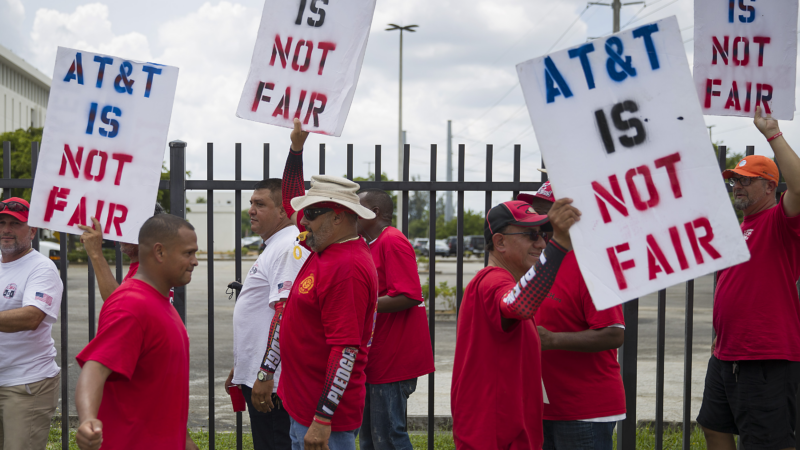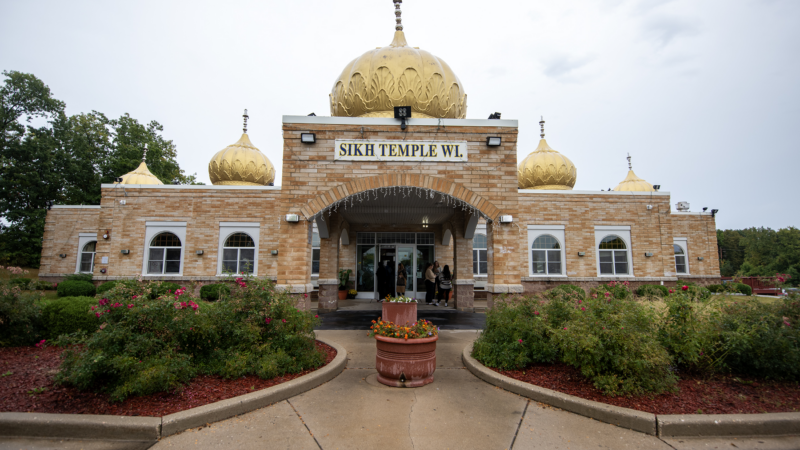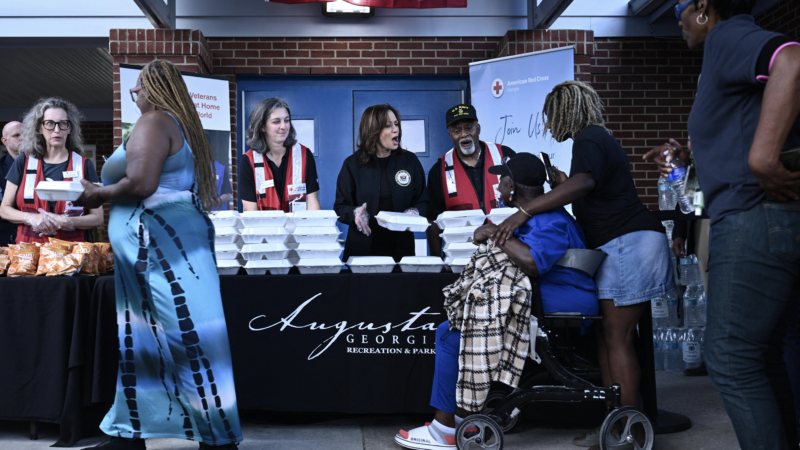17,000 AT&T workers have been on strike for three weeks. Here’s why.
About 17,000 AT&T workers in the southeast are still on strike after the Communications Workers of America union withdrew from negotiations over a new contract.
Internet service technicians, customer service representatives, and thousands of other workers in nine states—Alabama, Florida, Georgia, Kentucky, Louisiana, Mississippi, North Carolina, South Carolina, and Tennessee—walked off the job after contract talks stalled last month.
The CWA, which represents the striking AT&T workers, says its members are looking for a contract that delivers increased wages and benefits, including more for healthcare, and claims the company violated the National Labor Relations Act by not bargaining in good faith to come up with a contract that addresses these demands.
The Dallas-based telecom giant denies the claim.
“We’re disappointed that union leaders would call for a strike at this point in the negotiations rather than directing their energies toward constructive discussions at the bargaining table. This action needlessly jeopardizes the wages and well-being of our employees,” an AT&T spokesperson said in an emailed statement.
CWA Local 3204 in Atlanta President Ed Barlow says the lack of bargaining is the direct cause of the strike.
“If the company doesn’t want to send the right representative to the table, our members are prepared to stay out and strike as long as we have to to get the company to do the right thing at the bargaining table,” Barlow said.
Union leaders agreed to AT&T’s proposal to return to the negotiation table with a federal mediator present, but CWA informed the telecom company on Monday that it was withdrawing from the mediation process.
“We appreciate the mediator’s efforts. Our message to AT&T is: no more excuses. It’s time to get serious about bargaining so we can get back to work serving our customers,” CWA District 3 Vice President Richard Honeycutt said in a press release.
A spokesperson for the telecom giant says regardless of neutral third-party intervention, progress on the contract for thousands of workers will require some compromise. “We thank the mediator for their efforts throughout this process,” an AT&T spokesperson said.
Last week, CWA President Claude Cummings Jr. joined members on the picket line outside of AT&T’s Atlanta headquarters.
“Hell, we could get a contract. If they would just bargain, we could probably get a contract today if they would just bargain,” Cummings Jr. said.
He says AT&T has yet to send any representatives to the table with the power to negotiate.
“We just want you to bargain, just bargain with us and we’ll get to a place where we will have something that we both can live with and to send these members to vote on,” Cummings Jr. said.
“Customers are hurting,” Cummings Jr said.
Customers have taken to social media saying they are experiencing internet service outages and repair delays.
Tom Smith is an economist at Emory University.
“I don’t think that this is gonna go on for months and months and months, but it could,” he said.
He says that until a deal is reached, customers will have to endure service disruptions.
“If it wasn’t disruptive or it didn’t have any kind of negative element towards customers, then AT&T, I suspect, wouldn’t feel any kind of pressure to negotiate,” he said.
In 2019, about 20,000 CWA AT&T employees in the South went on strike for four days following the failure to agree to new employment contracts. The strike ended with a five-year tentative deal between CWA and AT&T that increased wages and enhanced retirement plans for workers.
“I mean, nobody wants to be in this situation,” Smith added. “I don’t think that striking workers want to strike. AT&T doesn’t want the service interruptions. Customers clearly don’t want the service interruptions,” he said.
AT&T said in a statement that it remains focused on reaching a fair agreement, and is providing customer service throughout the work stoppage.
Marlon Hyde reports on business and the economy for member station WABE in Atlanta, Georgia.
Garth Brooks is accused of rape and sexual assault in a lawsuit
The unnamed woman claims Brooks sexually assaulted her several times while she worked for him as a makeup artist. Brooks says the woman is exploiting him for money.
Why did Tim Walz call himself a ‘knucklehead’ this week? Find out in the quiz
They debated, they wrote memoirs, they got inaugurated, they turned 100. What else did political people do? Plus: wildlife's gonna wildlife
We visited a Sikh temple that sits at the intersection of multiple election issues
NPR visits the Sikh Temple of Wisconsin in Oak Creek, where a white supremacist mass shooting took place 12 years ago.
The October surprise: Harris is navigating a pair of them
Devastation left by Hurricane Helene. Escalated tensions in the Middle East. The Harris campaign is navigating a pair of October surprises as Election Day draws closer.
Israeli airstrikes cut off a key crossing between Lebanon and Syria
The latest strikes came after Israel warned people to evacuate communities in southern Lebanon that are outside a United Nations-declared buffer zone.
The ‘reddit bro’ vs. the ‘wife guy’; plus, Fat Bear Week!
Tuesday night, JD Vance and Tim Walz faced off in their first debate. Host Brittany Luse is joined by NPR's national race and identity correspondent Sandhya Dirks and political correspondent Danielle Kurtzleben to discuss how the candidates display competing brands of white masculinity.Then, Fat Bear Week is back! The annual March Madness-style bracket of the fattest bears in Alaska's Katmai National Park is in full swing after a rocky start. In honor of Fat Bear Week, Brittany revisits a journey through time to unpack what bears mean to us — and why they're family, friend and foe all at once.






